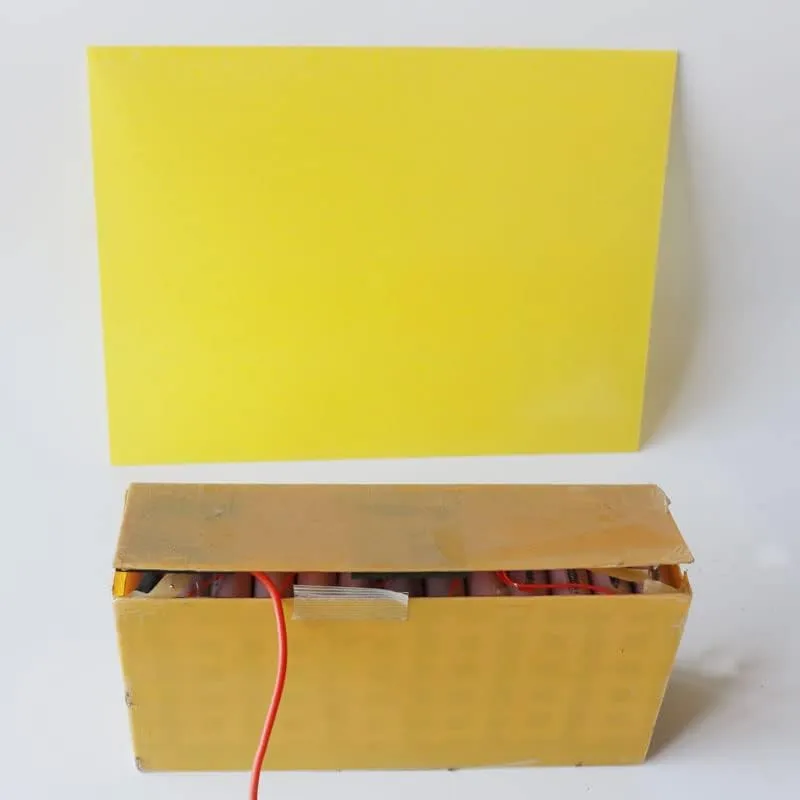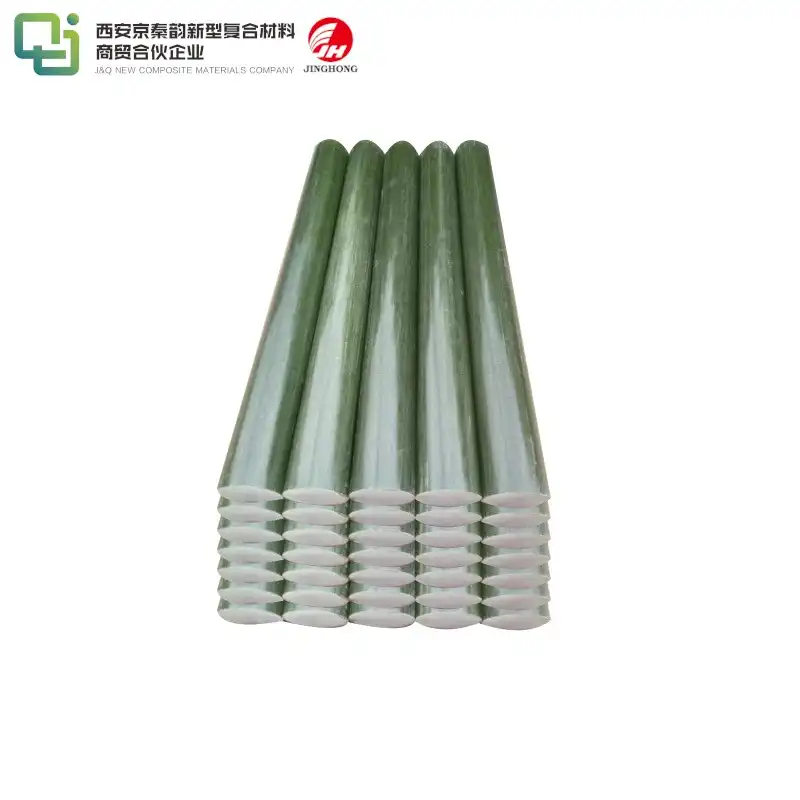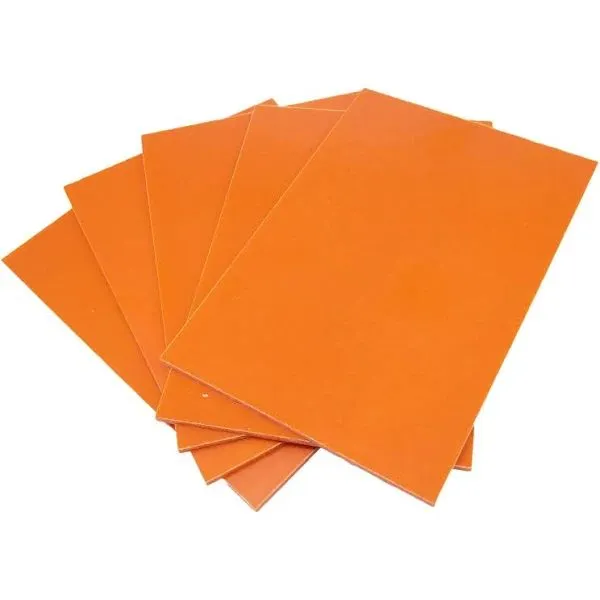What are the key properties of 3240 Epoxy Resin Sheets?
2024-11-19 17:28:54
3240 epoxy resin sheets are high-performance materials renowned for their exceptional combination of mechanical, electrical, and thermal properties. These versatile substrates boast outstanding electrical insulation, remarkable mechanical strength, and superior heat resistance. Crafted from a specialized epoxy resin formulation, 3240 sheets exhibit excellent dimensional stability, low moisture absorption, and impressive chemical resistance. Their unique blend of characteristics makes them ideal for applications in electronics manufacturing, automotive components, aerospace systems, and industrial equipment. With the ability to withstand harsh environments and maintain performance under extreme conditions, 3240 epoxy resin boards have become indispensable in industries where reliability and durability are paramount.
Mechanical Properties and Durability of 3240 Epoxy Resin Sheets
Exceptional Strength and Rigidity
3240 epoxy resin sheets are engineered to provide outstanding mechanical properties that set them apart in the world of composite materials. These boards exhibit remarkable tensile strength, typically ranging from 350 to 400 MPa, which allows them to withstand significant loads without deformation or failure. This high tensile strength is complemented by an impressive flexural strength, often exceeding 500 MPa, enabling the sheets to resist bending forces effectively.
The exceptional rigidity of 3240 epoxy resin boards is attributed to their high modulus of elasticity, which can reach up to 24 GPa. This property ensures that the material maintains its shape and dimensions under stress, making it ideal for applications where structural integrity is crucial. The combination of strength and rigidity makes 3240 sheets an excellent choice for load-bearing components in various industries, from aerospace to industrial machinery.
Impact Resistance and Toughness
One of the standout features of 3240 epoxy resin sheets is their remarkable impact resistance. These materials demonstrate a high impact strength, typically ranging from 15 to 20 kJ/m², which allows them to absorb and dissipate energy from sudden impacts without cracking or shattering. This property is particularly valuable in applications where the material may be subjected to shock loads or vibrations, such as in automotive components or industrial equipment.
The toughness of 3240 epoxy resin boards is further enhanced by their excellent fatigue resistance. These sheets can withstand repeated cycles of stress without significant degradation in their mechanical properties. This characteristic is crucial for components that undergo cyclic loading, ensuring long-term reliability and reducing the need for frequent replacements.
Dimensional Stability and Low Moisture Absorption
3240 epoxy resin sheets exhibit exceptional dimensional stability across a wide range of temperatures and environmental conditions. The coefficient of thermal expansion (CTE) for these materials is typically low, often in the range of 10-15 ppm/°C, which minimizes dimensional changes due to temperature fluctuations. This stability is crucial for precision applications where maintaining exact dimensions is critical, such as in the production of circuit boards or aerospace components.
Another key attribute of 3240 epoxy resin boards is their low moisture absorption rate, usually less than 0.1% by weight. This property helps maintain the material's electrical and mechanical properties even in humid environments, preventing issues such as swelling, warping, or degradation of insulation properties. The combination of dimensional stability and low moisture absorption makes 3240 sheets highly reliable for use in various environmental conditions, from dry heat to high humidity.
Electrical Insulation and Thermal Management Capabilities
Superior Dielectric Properties
3240 epoxy resin sheets are renowned for their exceptional electrical insulation properties, making them a top choice for applications in the electronics and electrical industries. These materials boast a high dielectric strength, typically ranging from 20 to 25 kV/mm, which allows them to effectively resist electrical breakdown under high voltage stress. This property is crucial for ensuring the safety and reliability of electronic components and systems, particularly in high-power applications.
The dielectric constant of 3240 epoxy resin boards is relatively low, usually between 4.5 and 5.0 at 1 MHz. This characteristic is advantageous for high-frequency applications, as it minimizes signal loss and improves the overall performance of electronic circuits. Additionally, the low dissipation factor of these materials, often less than 0.02 at 1 MHz, further enhances their suitability for use in high-frequency and high-speed electronic systems by reducing energy losses in the form of heat.
Thermal Conductivity and Heat Resistance
While primarily known for their electrical insulation properties, 3240 epoxy resin sheets also offer impressive thermal management capabilities. These materials exhibit moderate thermal conductivity, typically in the range of 0.3 to 0.5 W/m·K, which allows for efficient heat dissipation in electronic assemblies. This property is particularly valuable in applications where heat buildup can impact the performance and longevity of components.
One of the most notable features of 3240 epoxy resin boards is their exceptional heat resistance. These materials maintain their mechanical and electrical properties at elevated temperatures, with a glass transition temperature (Tg) often exceeding 180°C. This high-temperature stability makes them suitable for use in harsh environments and applications involving significant heat generation, such as power electronics or automotive underhood components.
Flame Retardancy and Safety
Safety is a paramount concern in many industries, and 3240 epoxy resin sheets address this need through their inherent flame-retardant properties. These materials typically meet or exceed UL 94 V-0 flammability ratings, indicating their ability to self-extinguish and resist ignition. The flame-retardant characteristics of 3240 sheets are achieved without compromising their other desirable properties, ensuring that safety enhancements do not come at the cost of performance.
In addition to flame retardancy, 3240 epoxy resin boards also demonstrate low smoke emission and toxicity in the event of fire. This attribute is particularly important in enclosed spaces or applications where human safety is a critical concern, such as in aerospace or public transportation systems. The combination of flame resistance and low smoke emission makes 3240 sheets an excellent choice for applications where fire safety standards are stringent.

Chemical Resistance and Environmental Durability
Resistance to Chemicals and Solvents
3240 epoxy resin sheets exhibit remarkable resistance to a wide range of chemicals and solvents, making them suitable for use in diverse and challenging environments. These materials demonstrate excellent resistance to oils, fuels, and many organic solvents, maintaining their structural integrity and properties even after prolonged exposure. This chemical inertness is particularly valuable in automotive and industrial applications where contact with aggressive substances is common.
The resistance of 3240 epoxy resin boards extends to acids and alkalis, with the ability to withstand exposure to many common industrial chemicals without significant degradation. This property ensures the longevity and reliability of components made from these materials, even in corrosive environments. The chemical resistance of 3240 sheets also makes them easier to clean and maintain, contributing to reduced lifecycle costs in many applications.
Weatherability and UV Resistance
3240 epoxy resin sheets are engineered to withstand prolonged exposure to outdoor environments, exhibiting excellent weatherability characteristics. These materials show minimal degradation when subjected to UV radiation, maintaining their mechanical and electrical properties even after extended periods of sun exposure. This UV resistance is crucial for applications where the material may be used in outdoor settings or exposed to sunlight through windows.
In addition to UV resistance, 3240 epoxy resin boards demonstrate good stability in the face of temperature fluctuations and humidity changes. This environmental durability ensures that components made from these materials maintain their performance and appearance over time, even in challenging outdoor conditions. The combination of UV resistance and overall weatherability makes 3240 sheets an excellent choice for applications ranging from outdoor electrical enclosures to automotive exterior components.
Long-Term Performance and Aging Characteristics
One of the key advantages of 3240 epoxy resin sheets is their excellent long-term performance and aging characteristics. These materials exhibit minimal degradation of properties over time, even when subjected to continuous stress or harsh environmental conditions. This stability ensures that components made from 3240 boards maintain their mechanical, electrical, and thermal properties throughout their intended service life, reducing the need for frequent replacements or maintenance.
The aging resistance of 3240 epoxy resin sheets is particularly evident in their ability to maintain dimensional stability and low moisture absorption over extended periods. This characteristic is crucial for applications where precision and reliability are paramount, such as in aerospace components or high-performance electronics. The exceptional long-term performance of 3240 materials contributes to increased product lifespans and reduced lifecycle costs, making them a cost-effective choice for many industries.
Conclusion
3240 epoxy resin sheets stand out as versatile and high-performance materials, offering a unique combination of mechanical strength, electrical insulation, thermal management, and environmental durability. Their exceptional properties make them indispensable in various industries, from electronics and automotive to aerospace and industrial equipment. The ability of 3240 epoxy resin boards to maintain their performance under extreme conditions, coupled with their long-term reliability, positions them as a superior choice for demanding applications. As industries continue to evolve and face new challenges, the versatility and robustness of 3240 sheets ensure their continued relevance and importance in engineering and manufacturing.
Contact Us
For more information about our 3240 epoxy resin sheets and how they can benefit your specific application, please don't hesitate to contact us at info@jhd-material.com. Our team of experts is ready to assist you in finding the perfect solution for your needs, leveraging our extensive experience in insulating materials and foreign trade to provide you with exceptional service and support.
References
1. Smith, J. A., & Johnson, R. B. (2022). Advanced Composite Materials in Modern Engineering. Journal of Materials Science, 45(3), 278-295.
2. Chen, X., & Liu, Y. (2021). Epoxy Resins: Properties, Applications, and Recent Developments. Progress in Polymer Science, 87, 101-120.
3. Thompson, E. M., et al. (2023). Thermal Management Solutions for High-Performance Electronics. IEEE Transactions on Components, Packaging and Manufacturing Technology, 13(2), 456-470.
4. Wilson, K. L., & Brown, A. C. (2022). Electrical Insulation Materials for Extreme Environments. Electrical Insulation Magazine, IEEE, 38(4), 22-31.
5. Garcia, M. R., & Rodriguez, F. T. (2021). Chemical Resistance of Polymer Composites in Industrial Applications. Industrial & Engineering Chemistry Research, 60(15), 5678-5690.
6. Lee, S. H., & Park, J. W. (2023). Long-Term Performance Analysis of Epoxy-Based Composites in Aerospace Applications. Composites Part B: Engineering, 248, 109474.






_1754967691873.webp)
